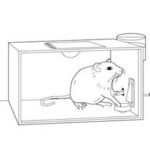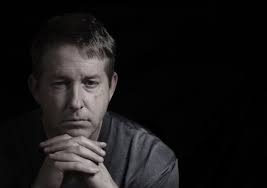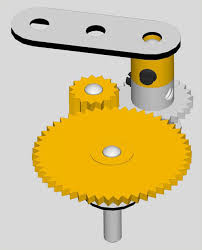An “attractor” is really just a description of how a system (e.g. a person, a person’s brain) behaves — how it looks from outside. Here, in the second half of the article (revised), I look at the underlying mechanisms that explain why addiction works as an attractor — why it behaves the way it does.
…………………….
Most obviously, addiction is characterized by a strong desire to pursue a substance or behaviour. The substance or activity temporarily relieves the desire, but a negative emotional state is left in its wake. Loss, disappointment and anxiety emerge as soon as the substance or activity is finished or no longer satisfies — e.g., once the drugs or booze are gone. And so desire builds once again. In this way, addiction perpetuates the need it was intended to satisfy. But it also perpetuates the behaviour: the addict learns to satisfy the recurring state of need by getting more, doing more, thus further consolidating the learning — and the neural patterns underlying it. What fires together wires together. The biology of learning locks in the habit, so choosing to stop is not a simple one-step decision. You have to choose to stop repeatedly and continuously until these neural patterns have a chance to reconfigure.
Brian taught in a community college in Cape Town, ran a successful business, and generally used his fine mind to good advantage. But the pileup of obligations and a mild attention-deficit problem saw him begin taking various stimulants to stay awake and clear-headed. Within two years, he was smoking crystal meth several times  per day. Sleep became sporadic and unpredictable. He could no longer think in straight lines, and fantastical whims soon replaced his customary rationality. His business fell apart, he moved in with his dealer, and his precious relationship with his young daughter turned into a parody of parenting, with him sneaking out to the car every hour or two for another hit. Meth comes on strong and brings with it clarity, optimism and brilliant energy. But Brian’s sleep loss meant that the high was increasingly short-lived. With the first hints of loss, he would grab for his pipe, eager beyond reason for another launch.
per day. Sleep became sporadic and unpredictable. He could no longer think in straight lines, and fantastical whims soon replaced his customary rationality. His business fell apart, he moved in with his dealer, and his precious relationship with his young daughter turned into a parody of parenting, with him sneaking out to the car every hour or two for another hit. Meth comes on strong and brings with it clarity, optimism and brilliant energy. But Brian’s sleep loss meant that the high was increasingly short-lived. With the first hints of loss, he would grab for his pipe, eager beyond reason for another launch.
 Other (interconnected) feedback loops facilitate and consolidate addiction. They include social isolation, reinforced by the addiction, which leaves the addict with fewer opportunities to reconnect with people, or with healthier pleasures. They include the rationalizations that addicts know too well: if I’m such a bad person, or so misunderstood, then I might as well do it again. Brian was a self-reflective guy; he knew how much he had lost. His ongoing self-destruction seemed a punishment for what he perceived as his failure.
Other (interconnected) feedback loops facilitate and consolidate addiction. They include social isolation, reinforced by the addiction, which leaves the addict with fewer opportunities to reconnect with people, or with healthier pleasures. They include the rationalizations that addicts know too well: if I’m such a bad person, or so misunderstood, then I might as well do it again. Brian was a self-reflective guy; he knew how much he had lost. His ongoing self-destruction seemed a punishment for what he perceived as his failure.
Addiction isn’t about rationality or choice; it’s not about character defects or bad parenting, even though childhood adversity is clearly a risk factor. Addiction is about habit formation, brought on through recurring, self-reinforcing feedback loops. And although choice is not obliterated by addiction, it is much harder to break deep habits than shallow ones.
With respect to mental health more generally, addiction can be seen as one member of a family of attractors. Depression, anxiety disorders, post-traumatic stress disorders and other stable conditions are highly resilient despite their unpleasantness. They are identifiable as attractor states — unattractive attractors we might call them — as readily as addiction.
 According to classical learning theory, rewarded behaviours proliferate, while behaviours leading to adverse consequences are extinguished. Yet this clearly misses the point when it comes to the development of emotional problems. Rather, it sometimes seems that the most
According to classical learning theory, rewarded behaviours proliferate, while behaviours leading to adverse consequences are extinguished. Yet this clearly misses the point when it comes to the development of emotional problems. Rather, it sometimes seems that the most  unpleasant conditions are the most likely to become entrenched. Mental and emotional states characterized by suffering appear in adolescent development with remarkable frequency, and they continue to dominate the personality for years if not for life. Why would such negative states become attractors, become concretized and stuck?
unpleasant conditions are the most likely to become entrenched. Mental and emotional states characterized by suffering appear in adolescent development with remarkable frequency, and they continue to dominate the personality for years if not for life. Why would such negative states become attractors, become concretized and stuck?
Perhaps emotional problems like depression and anxiety are diseases. These are indeed the conditions that psychiatry has labelled and pretended to understand — then remained impotent to prevent and treat. Even the medications prescribed for these ‘illnesses’ are notoriously  ineffective. (Antidepressants simply do not work for most depressed people, except as placebos.) So it’s not surprising that addiction might also be viewed as a psychiatric illness — one that’s hard to treat and therefore “chronic.”
ineffective. (Antidepressants simply do not work for most depressed people, except as placebos.) So it’s not surprising that addiction might also be viewed as a psychiatric illness — one that’s hard to treat and therefore “chronic.”
Deep psychological attractors such as addiction, depression and anxiety disorders stabilize for a reason — and it’s not because they make things easier. In general, they stabilize because the interactions that forge them involve strong emotions that call for cognitive compensations that end up making things worse. Depression, for example, involves a sense of loss and rejection that calls up ruminative thoughts whose very character tends to be self-deprecating. The more we examine ourselves, the  more fault we see; and so rejection, sadness, and shame are amplified. Anxiety draws attention to threat. That is its evolutionary purpose. Thus anxiety disorders arise from a very simple, very pernicious feedback cycle. The more anxiety, the more attention to what could go wrong, to the dangers implicit in the environment. In turn, this thinking amplifies the feeling of anxiety. And so on.
more fault we see; and so rejection, sadness, and shame are amplified. Anxiety draws attention to threat. That is its evolutionary purpose. Thus anxiety disorders arise from a very simple, very pernicious feedback cycle. The more anxiety, the more attention to what could go wrong, to the dangers implicit in the environment. In turn, this thinking amplifies the feeling of anxiety. And so on.
Thankfully, most people pass through their depressions, conquer their fears, and come to terms with their traumas, through some combination of effort, circumstance, skill and luck. With respect to addiction, the news is generally good. With all substances, including heroin, methamphetamine and alcohol, most addicts recover. Depending on the researchers’ claims, methods and definitions, proportions vary roughly from 50 per cent to 90 per cent. The latency to quit or to achieve controlled use varies with the substance, the person and the culture. But experts increasingly agree that development itself drives recovery. While repetition leads to habit-formation, it also leads to boredom, frustration and despair, and these negative emotions impel us to keep on trying something we might have failed at before, as our skills and self-knowledge continue to mature.
Donna stopped taking opiates as soon as she began psychotherapy. She was lucky to find a therapist who not only understood her addiction but understood her, especially the childhood hurts that had sent her searching for chemically induced peace while rationalizing the triumph she’d achieved through deceiving others.
Johnny stopped drinking just before he killed himself. Our interviews took place when he was in his late 60s – an age he’d once seemed unlikely to reach. Johnny used AA, psychiatry, yoga, massage and just about every other trick in the book. His suffering was too great for him to stop trying.
Brian, meanwhile, not only gave up meth; he is now completing a PhD in addiction studies. He holds three international grants for applying addiction-treatment strategies to difficult populations, and he was invited to speak to the United Nations about new directions in drug-policy reform.
Not all addicts grow out of their addictions. Some remain enslaved for life, and some die. But the very stuckness of addiction, the redundancy and stupidity of chasing the same narrow goal each day, constitutes a worthy challenge for all that’s creative and optimistic in the human repertoire.

Leave a Reply